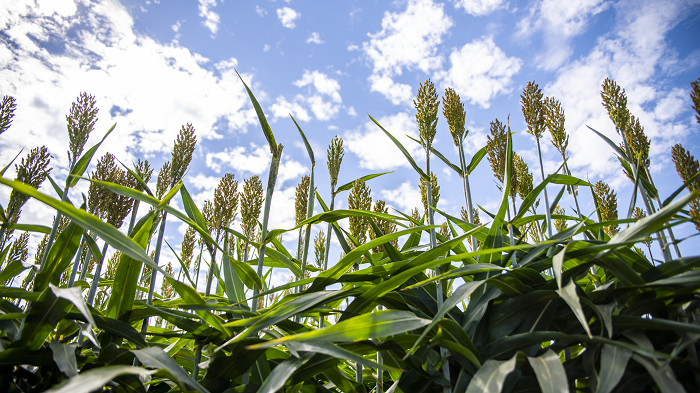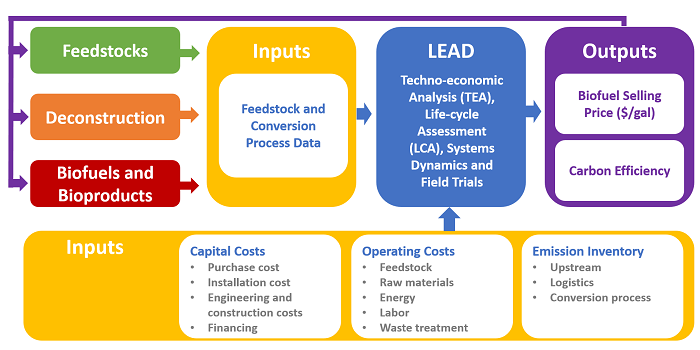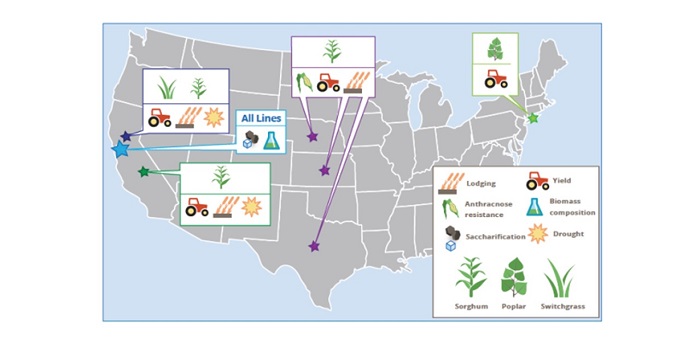Scientific discoveries in the lab could have a profound impact on the economics and sustainability of biofuels and bioproducts when implemented at full scale. Demonstrating the performance of engineered crops in the field and having accurate technoeconomic analysis (TEA) and life-cycle analysis (LCA) models to assess all aspects of the supply chain are essential for focusing research efforts. We are conducting initial field trials at the University of California, Davis and the Kearney Agricultural Research and Extension Center in Parlier, CA to understand how engineered traits impact crops’ yield, drought tolerance, disease resistance. JBEI has also designed and deployed state-of-the-art, publicly-available technoeconomic models that have allowed us to identify the key parameters that impact the price of biofuel synthesized from lignocellulosic biomass, and we have used these models to evaluate the economic impacts of our scientific discoveries. To ensure rigorous modeling results despite potential limited data availability and quality, we have established practices for internal and external validation of our model results, robust uncertainty analyses, and methods to approximate key input data in cases where it is unavailable.
Research Challenges
- Predict the impact of JBEI research results on biofuel selling price and carbon efficiency
- Assess biofuel/bioproduct pathway economic and environmental performance at U.S. national scale
- Ensure that engineered bioenergy crops are robust and sustainable


